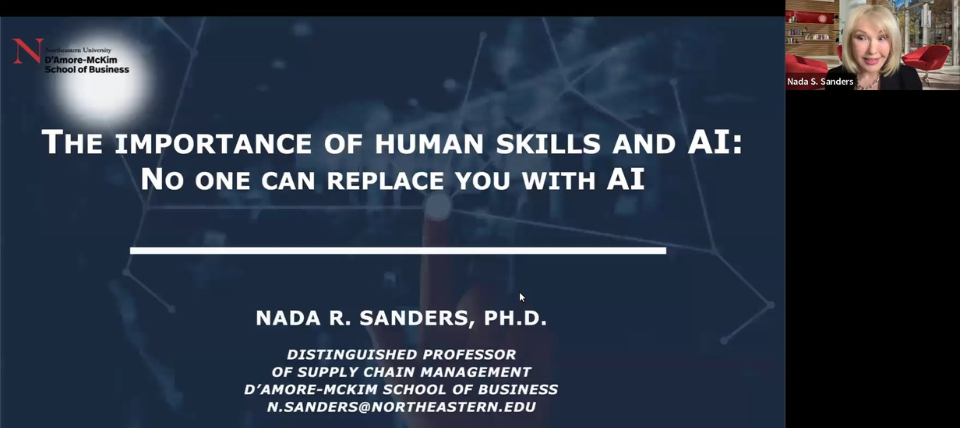Jakarta, 6 March 2024 — BINUS Business School (BBS) hosted the prestigious “The Importance of Human Skills and AI: No One Can Replace You with AI,” where over 500 students from BBS undergraduate programs and our partner, D’Amore-McKim School of Business—Northeastern University, delve deeper into the symbiotic relationship between human skills and artificial intelligence (AI).
Dr. Respati Wulandari, S.H., M.M., and Ms. Anggaraeni Woro Hapsari from the Internationalization and Partnership Program team of the Undergraduate Program at BINUS Business School, took the initiative to organize this webinar.
According to the latest World Economic Forum Report 2023, in the next five years, professions in AI & machine learning, sustainability, and business intelligence emerge as the top three rapidly expanding job sectors. Conversely, positions such as bank tellers, clerks, and administrative roles are anticipated to experience the most significant decline in job opportunities.
In the wake of the pandemic, significant transformations have occurred, particularly in the demand for new business models and human skills to bolster companies’ competitiveness. This necessitates reskilling the workforce and harnessing technology to its fullest potential.
With an internationally recognized background in forecasting, global supply chains, risk management, and human-technology integration, Dr. Sanders delineated the trajectory of the future through the lens of two significant events: firstly, the post-pandemic era, often referred to as the “New Normal,” and secondly, the burgeoning AI Revolution.
They extended an invitation to Nada R. Sanders, Ph.D., a highly regarded Professor of Supply Chain Management from D’Amore-McKim School of Business—Northeastern University, to be a distinguished speaker for the event.
Dr. Sanders also emphasized, “Merely acquiring AI capabilities is insufficient for imbuing human resources with a competitive edge. To achieve this, it is imperative to cultivate new skills such as creating and analytical thinking, technological literacy, curiosity, and lifelong learning.”
As the webinar concluded, the students not only expressed enthusiasm for gaining valuable insights and recognizing the transformative impact of the AI revolution on job functions and industries, but they also acknowledged the necessity of acquiring a versatile skill set to adapt, innovate, and thrive in the face of technological advancement.
For further information on this activity, please contact Dr. Respati Wulandari, S.H., M.M by email at respati.wulandari@binus.edu
... ... ...